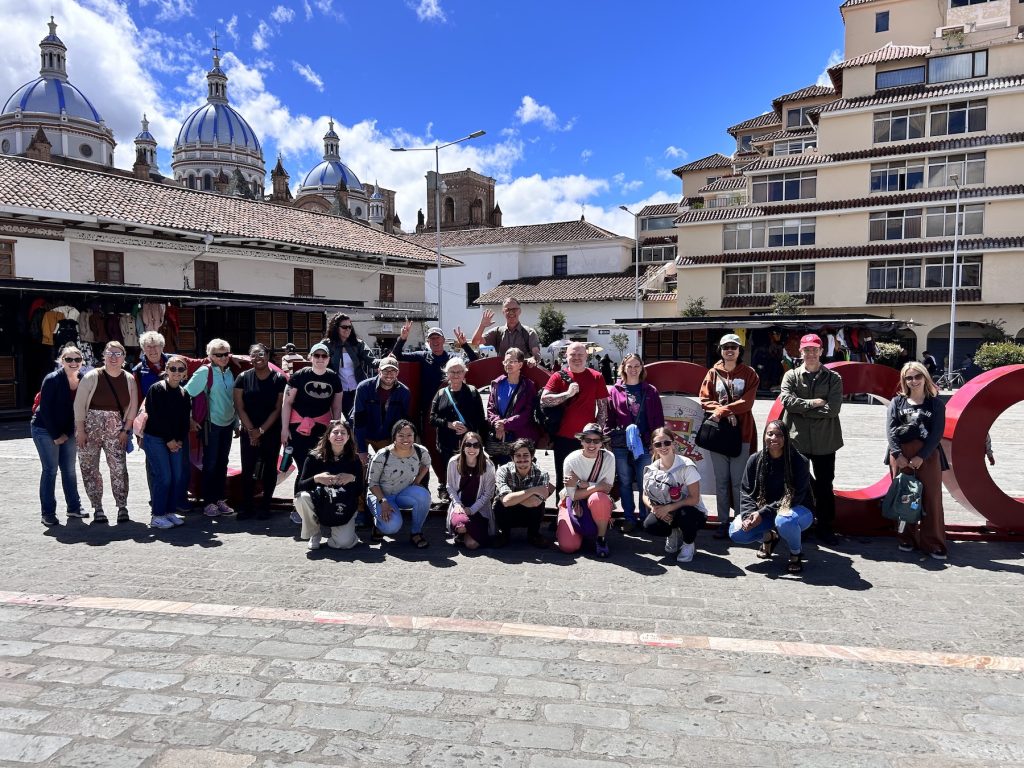We work with hundreds of international travelers every year on our Spanish Immersion trips to Latin America. In many cases, working professionals, full-time students and parents of children still living at home have extremely tight schedules and don’t have the luxury of asking the question about the best length of a program for language development reasons.
But for those clients of ours in a season of life with more flexibility at home and at work, a variation of this question often comes up in our conversations pre-trip:
Rory, what is the best length of time for me to travel abroad if I want to return home with a vastly different ability in my Spanish proficiency?
Malcolm Gladwell has famously proposed that in order to master any particular skill in life, we need approximately 10,000 hours dedicated to that craft. Of course, let’s put these hours of language learning in context… when it comes to Spanish, these 10,000 hours probably apply to linguists (professional interpreters, translators, etc), not to most people seeking to learn Spanish for everyday practical purposes. Very few of us truly need to have mastery of the Spanish language for our day to day uses of Spanish. So, it’s safe to say that you can make great strides in your business, healthcare or teaching career with fewer hours dedicated to Spanish 😅.
The ideal length of time to travel abroad to learn a language depends on several factors: your current proficiency level, your learning goals and the intentional language-learning components of your trip. Most language experts agree that your learning curve is very steep within your first 13 weeks (approximately three months) of your Spanish immersion trip. For those first 3 months, your exposure to Spanish in varied contexts, from daily interactions with your host family, to targeted language classes, plus random encounters on the streets and in shops help you understand cultural nuances, linguistic variations, and you build your confidence interacting. Every week you add to your trip (up to those first 13) exponentially adds to your proficiency. Interpretation = a 2-week trip is exponentially better than a 1-week trip, 3 weeks much better than 2, 4 immensely better than 3, etc.
So what can you expect to learn on a Spanish immersion trip based on your current Spanish level?
- If you’re starting out as a true beginner, you can expect to achieve a basic level of proficiency, enabling you to hold simple conversations and understand common phrases. You can navigate situations successfully in spite of making language mistakes.
- If you’re already an intermediate speaker, you are going to get to the place where certain grammar constructions are now second nature to you and you’ll notice that your comprehension of native speakers improves vastly. The confidence you gain to navigate conversations in a variety of situations will help you to take advantage of language opportunities that come your way, which in turn gives you more opportunities to practice, which results in continuing to improve your Spanish over the long run.
- As an advanced level student, this time abroad gives you a chance to really settle in with Spanish and adjust your conversational goals from making specific linguistic advances to polishing your rough edges as you truly getting to know others and make some sort of contribution – whether it be interpersonal or societal. Through your ability to relate to others on a deeper level, your eyes open up to cultural subtleties and linguistic nuance.
It’s important to note that the length of time is just one factor. Structured learning plus consistent and effective practice is key to language learning success. Short trips are beneficial when you actively engage with the language daily through conversation exchanges, language classes, host family conversations, cultural activities and meaningful volunteer work.
Ultimately, the ideal length of time to travel abroad for language learning is subjective and depends on your personal goals and circumstances. Some learners may find that a shorter stay meets their needs, while others may benefit from a longer experience. The key is to set clear goals, stay motivated, and make the most of your time abroad to maximize your language learning potential.




